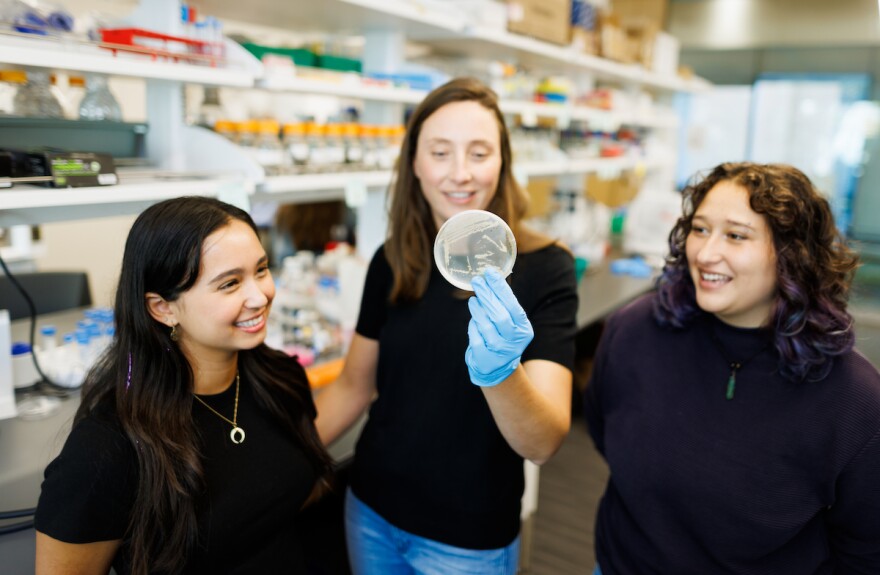You can call it "Jurassic bacteria."
A Cal Poly San Luis Obispo microbiology team is reviving and growing bacteria that are tens of millions of years old, in research that may help us learn more about modern-day antibiotics.
"This was a collection of bacteria that was gifted to my lab by an emeritus professor in the Biology Department, Dr. Raul Cano. Dr. Cano had worked with fossilized amber samples. He had found insects inside these samples. One of the more well-known ones he isolated from the gut of a bee that was in fossilized amber. He thinks they could date back 25 to 40 million years," said Cal Poly Biochemistry Professor Katharine Watts, who is working with postdoctoral fellow Rachel Johnson on the project.
"The bacteria often formed these little shells around their cells we call endospores," Watts added. "They can exist in this state of not really living and dividing and growing. You can revive them with very careful treatment by giving them nice media to work with and a buffered solution. You can get them back even though they've been sitting in a dormant state for a very long time."

The hope is that the research may help us learn more about antibiotics. There’s been a rise in antibiotic-resistant pathogens. The thought is that perhaps some of these microbes can contribute to the development of new antibiotics.
"The research in my lab has focused around interesting small molecules the bacteria produce. We're especially interested in things like antibiotics bacteria produce. We saw this collection as a really cool opportunity to look at whether or not bacteria made these antibiotic-like molecules millions and millions of years ago," said Watts. "We also want to see if we can understand antibiotic resistance. Bacteria often encodes sort of a self-resistant antibiotic that they produce to protect themselves from those molecules."
Watts said the good news is they’ve been able to get the ancient bacteria to grow.
Some Cal Poly students are a part of the research team.
"I love being involved in the project. I think there are so many new things I'm learning. Each day I'm excited to go into the lab," said Safiya Rufino, a Cal Poly senior who is dual-majoring in microbiology and food sciences.
Watts said it’s exciting to have students involved in the cutting-edge research.
The Cal Poly researcher said they hope to gather enough data from their current study to write a paper and share their findings, advancing research towards the development of a new generation of more resilient antibiotics.



